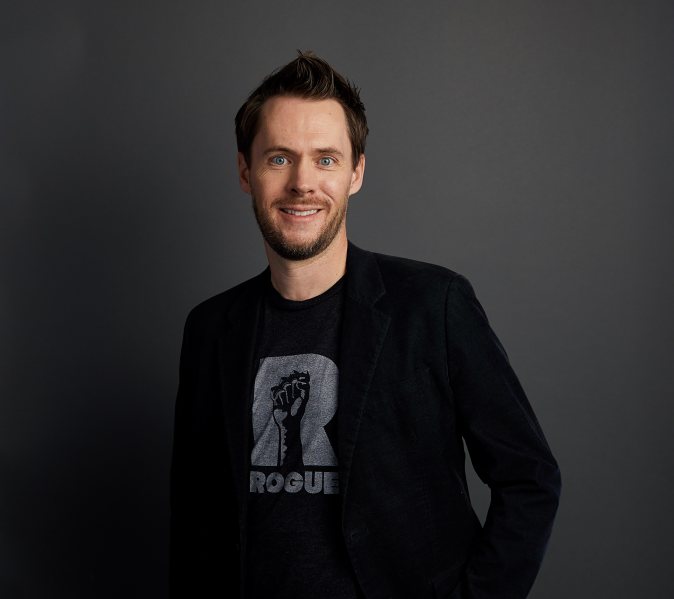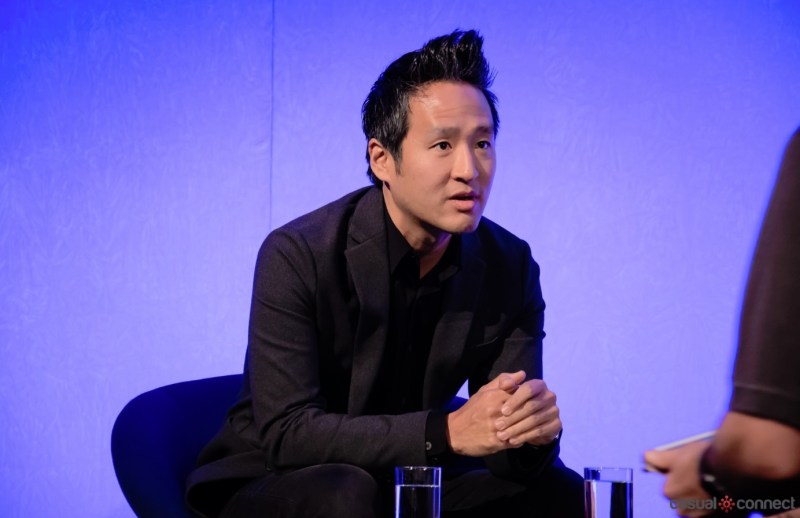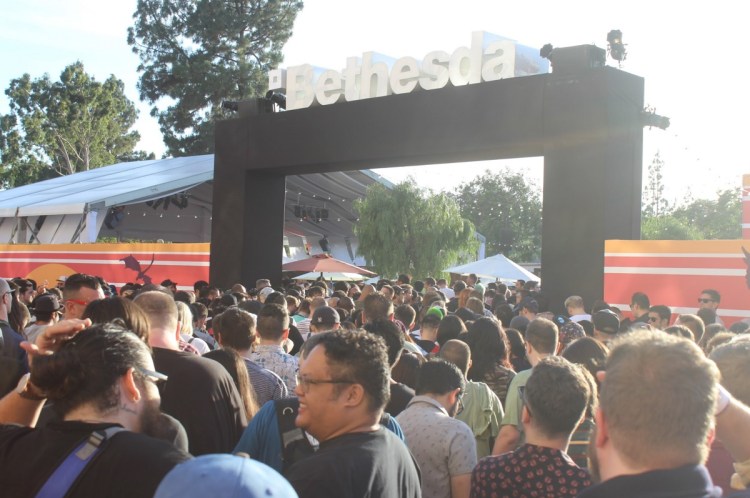Jacob Navok, CEO of Genvid Technologies

Above: Genvid Technologies CEO Jacob Navok.
Both E3 and GDC mean different things in terms of cancellation.
GDC matters little in terms of consumer marketing (despite Google’s attempts to make it that last year)…. It had some impact, but the large companies have their own channels to get out news to their customers in the industry. GDC is more important for smaller companies and smaller developers — when you’re a studio of five people, and you can meet two dozen partners in two days, as opposed to spending weeks flying around the world, it’s a vastly different set of opportunities and circumstance. This will hurt small developers. Also, [it’ll affect] devs looking for job opportunities, students looking for jobs opportunities, smaller companies like mine who use GDC as a stage to promote when we don’t have our own marketing channels. That is the problem with losing GDC — it doesn’t affect the large companies, it does affect the people who were at the heart of GDC for most of its existence.
E3 is a different story. One of the reasons that people have pulled out is that this was always a trade show for big brands, and those big brands have proven the last half-decade that they can draw consumer attention to their news outside of E3, and if anything, the barrage of news at E3 serves to distract from their stories, which is why they space them out now. There will be limited to no loss of marketing from E3 being canceled — Sony, [Microsoft], and Nintendo all have their own way of getting news out there. Since E3 never functioned as a trade show for small devs, I don’t see an industry impact at the same scale to GDC.
I don’t think digital events negatively effect things from the perspective of consumer marketing. I do think that they negatively affect things from the perspective of industry business development. There will be deals that won’t happen this year because people aren’t meeting at the L.A. JW Marriott or the St. Regis near Moscone.
Bryan Buskas, vice president of marketing at Rogue Games

Above: Bryan Buskas is vice president of marketing at Rogue Games.
Games industry events like GDC and E3, which launched two or more decades ago, have long been places to debut new hardware, technologies, and games. They both existed nearly 10 years or more before mobile games and the app stores at a time when games were nearly 100% retail-based. Today, the majority of all games, and marketing, is digital.
While global industry events like E3 and GDC are instrumental in meeting developers and showcasing new games, they are much less related to the marketing of digital games, whether mobile, PC, or console today. When the app stores and mobile games launched more than 10 years ago, games marketing accelerated rapidly toward becoming more performance-/growth-oriented, and budgets expanded rapidly.
While digital E3 and GDC events won’t be the same, where everyone can touch, play, and experience new games in person, the marketing of games will continue to shift toward digital and social, continuing to become more performance/growth based (user acquisition, influencers, social platforms), vs. traditional (retail, TV, out-of-office).
These are all things we’ve seen at Rogue, and [they’re] some of the founding principles of the company. The marketing execution of games has changed rapidly in the digital era — and it’s not slowing down any time soon.
Doron Nir, CEO of livestreaming tools and services provider StreamElements

Above: Doron Nir is CEO of StreamElements.
In the last couple of years, the hours watched of livestreamed E3 content has continued to hit new milestones, so it is going to be even more meaningful for brands who planned to take part in the conference this year. Since announcement videos are one of the most anticipated parts of the show, we also expect more creative activations around influencers such as large scale trailer deployment campaigns.
The appeal of attending events in person are face time with other industry members, hands-on with new games, and feeling the excitement in the room during a press conference reveal. That being said, the most important things are the actual announcements during the press conferences, which are livestreamed and reach the global community. This is why the idea of future cons being completely online is not a far-fetched idea. Devolver Digital, for example, has already illustrated how to successfully produce a virtual press conference and Xbox just announced their digital event.
In terms of others conferences, given the current COVID-19 crisis, game publishers should consider replacing them with online livestreamed events that are co-broadcasted by top creators. The added layer of audience interaction a company like ours provides can deliver the participation component gamers thrive on.
Elizabeth Olson, industry PR and marketing consultant

Above: Elizabeth Olson, pr and marketing consultant for games.
While both shows have marketing aspects, GDC is primarily focused on best industry practices, new technologies, business development, and B2B awareness. With its roots as a showcase for retailers and deal-making, E3’s shift toward consumers primarily benefited certain segments of the industry — namely big publishers and competitive PC and console games – leaving indies, mid-core, AA and mobile to fend for themselves. Which they did largely through digital marketing and less traditional channels. I don’t think digital can fully replace important aspects of either show, but suspect we’ll see an increased focus in digital & content marketing, and virtual events. And it certainly spotlights the growing importance of companies and publishers are that highly-skilled in digital marketing in building customer awareness.
Bernard Kim, president of publishing at Zynga

Above: Bernard Kim, head of publishing at Zynga.
The gaming industry is full of resilient people who are well-acquainted with change, adaptation and creating amazing things in unique circumstances. While we’re all eager for things to normalize, in the short term I think we’ll see the industry effectively embrace digital and virtual conferences, as we’ve seen with GDC and others. Video conference meetings, live streaming keynotes, webinars and virtual workshops offer incredible opportunities and options. I think we will rally to continue and possibly evolve our participation in these annual events.


